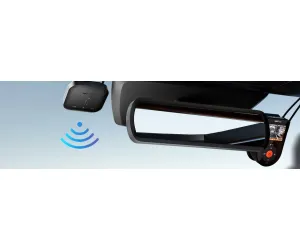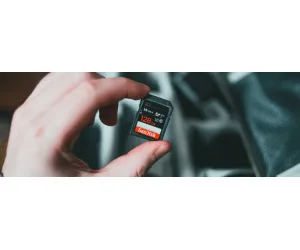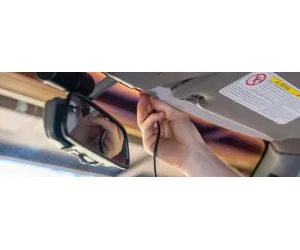
Dash cams have become increasingly popular for providing critical evidence in the event of accidents and enhancing vehicle security. However, a common concern among car owners is whether dash cams can drain the car battery.
This guide will address these concerns and provide helpful tips to ensure that your dash cam doesn’t negatively impact your car’s battery. Whether you already own a dash cam or are thinking of getting one, this guide will help alleviate any concerns.
Types of Dash Cam Batteries
Dash cams can be powered by different types of batteries, each with its own advantages and limitations:
-
Internal Batteries:
Internal batteries allow dash cams to operate independently for short periods, especially useful when the car is off. However, they have limited capacity and are not suitable for extended recording without an external power source. -
Capacitors:
Capacitors are more heat-resistant and durable compared to internal batteries. They provide enough power to save the last recording before powering down, making them ideal for hot climates. However, they don’t offer long-term power storage. -
External Battery Packs:
External battery packs provide a separate power source, reducing the load on the car’s battery. They can support continuous recording, including parking mode, but they require regular charging and tend to be more expensive.
Factors Affecting Battery Consumption
-
Power Consumption:
Dash cams typically consume 1-5 watts of power during normal operation. Parking mode, which keeps the camera active when the car is off, can increase power consumption. -
Battery Health:
Older or weaker car batteries are more likely to experience power drain issues. Regular maintenance and timely replacement of your car battery can help mitigate the risk. Keeping your battery in good condition can prevent problems related to battery drain. -
Installation Method:
Most dash cams are powered through the car’s cigarette lighter socket, which minimizes battery drain when the vehicle is off. Hardwiring provides continuous power but requires careful management to avoid draining the battery. Using a fuse tap with the correct fuse rating and a battery discharge prevention device is essential. -
Temperature Extremes:
Extreme cold or hot temperatures can negatively affect battery performance and increase power consumption. Parking in sheltered areas and using temperature management features in your dash cam can reduce these effects.
Preventive Measures
-
Battery Discharge Prevention Device:
Battery discharge prevention devices monitor the car’s battery voltage and automatically cut power to the dash cam if the voltage drops too low. This ensures that the car’s battery has enough charge to start the vehicle. -
Scheduled Recordings:
Setting your dash cam to record only during specific hours or under certain conditions, such as motion detection, can minimize unnecessary power consumption. These settings ensure that the dash cam is only active when needed, reducing its impact on the car battery. -
External Battery Packs:
Investing in an external battery pack specifically designed for dash cams can significantly reduce the risk of draining your car’s battery. These packs charge while driving and provide a separate power source when the car is off. -
Regular Battery Maintenance:
Maintaining your car battery regularly can help keep it in good condition. Checking for signs of wear and replacing the battery when necessary can prevent issues related to battery drain.
Frequently Asked Questions
How long can a dash cam run on a car battery in parking mode?
The duration depends on your car battery’s capacity and the dash cam’s power consumption. On average, a healthy car battery can support a dash cam in parking mode for 24-48 hours.
Is it safe to hardwire my dash cam?
Yes, hardwiring a dash cam can be safe if done correctly. It’s important to use the right fuse tap and install a battery discharge prevention device to prevent over-draining the car battery.
Conclusion
Installing a dash cam doesn’t necessarily mean your car battery will be drained. By understanding how dash cams consume power, using the right installation techniques, and utilizing features like voltage protection and external battery packs, you can enjoy the benefits of a dash cam without worrying about battery depletion.







